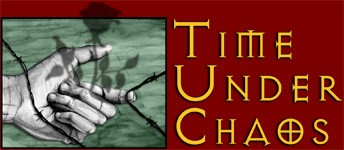
Amber's System of PeerageIndex | Time Under Chaos | Almanac | Amber's System of Peerage Current System of Peerage: The Peerage is a system of titles of nobility that exists in Amber and Chaos, as well as many Shadow monarchies. The term can be used to refer to the entire body of titles in a collective sense, or to a specific title held by an individual peer. All nobles in Amber are considered to be members of the peerage. The peerage as it exists today has been heavily influenced by the Chaosian Laws of Precedence, but has been simplified and streamlined. (Merlin's advisors initially tried to introduce and enforce a wholly Chaosian court and the full Laws of Precedence, but the citizens of Amber found this to be too confusing to be taken seriously. This was abandoned before the final version of the treaty was completed, and the treaty includes the rules of peerage currently in effect. All honours, spring from the Sovereign, who is considered the fount of honour. The Sovereign cannot belong to the Peerage as "the fountain and source of all dignities cannot hold a dignity from himself." If one is neither a peer nor the Sovereign, then one is a commoner. Members of a peer's family are also commoners; the new system thus fundamentally differs from the old, where entire families, rather than individuals, were ennobled. Even members of the Royal Family who do not hold peerage dignities are considered commoners, since they do not have special legal status distinct from other members of society. The most notable consequence of this is that they would be tried in the same court as free citizens of Amber. System of precedence (who bows to whom) and styles (forms of address): King "His Royal Majesty King Firstname" Rank in order of precedence: (Where not noted otherwise, the equivalent style of address for a woman is the same, with differing pronouns and the female form of the title. eg. "Her Grace the Duchess of Placename.") (Royals and Knights are not strictly a part of the peerage, but have been included for the sake of completeness.) Other members of the royal family (grandchildren of the king, etc.) are granted the honorary form of address "Lord" or "Lady" while still being common before the law. In speech, any peer or peeress except a duke or duchess is referred to as Lord X or Lady X. (For instance, the Earl of Derby is known as Lord Derby.) (Dukes and duchesses are known as "Duke" or "Duchess" Placename.) Knights and Dames are known as Sir or Dame. Children of peers also use special titles called courtesy titles. The eldest son of a duke, a marquis, or an earl may generally use his father's second-highest peerage dignity as his own. An eldest son who uses his father's second-highest title is called a courtesy peer. In law, courtesy peers remain commoners. Younger sons and daughters of dukes and marquis prefix Lord or Lady to their first names. These terms are also known as courtesy titles. All children of viscounts and barons use The Honorable. Children of earls do not use equivalent styles; daughters of earls use Lady, but younger sons of earls use The Honourable. Under the new system, titles can be either inherited or for life. Traitors are stripped of their titles automatically, which certainly includes "Princes" Caine and Julian. The eldest child, regardless of gender, inherits those titles which pass along family lines. Peerage under Oberon: Under Oberon, the title "Peer of Amber" carried with it a significant degree of prestige. Unlike under the modern system of peerage, it was awarded to only a minority of the nobility. These few dukes and counts held a position above more 'common' nobles, but still below the royals (princes, princesses, and the king). A Count who was a Peer under Oberon outranked a Duke who wasn't, although both were referred to in the conventional fashion. Peers under Oberon were judged in a separate court from other nobles, usually with Oberon himself as justice. Nobles, in turn, were judged separately from freemen of the city (but often by the same justices). "Common" nobles still enjoyed special privileges under Oberon. These generally involved reserved military positions, exceptions from certain taxes, the right to a coat of arms etc. Since Oberon created and removed these titles at will, gifted individuals rarely found common blood an impediment to personal advancement. The Archbishop of the Church of the Unicorn in Amber city was also a member of the Peerage of Amber under Oberon. This placed him (or rarely, her) above Archbishops in the Golden Circle in station. Hierarchy of titles under Oberon: (i.e. who bows to whom) King Religious Titles: For a brief discussion of religious titles, see Religion in Amber Golden (or Black) Circle Titles: Titles/ forms of address from lands near Amber and Chaos are generally recognized, although they are held to be one step lower than their equivalent native title for purposes of precedence. Diplomatic privileges etc. may supersede this demotion. Shadow Titles: Titles/ forms of address from shadow are generally recognized, although they are held to be two steps lower than their equivalent native title. Diplomatic privileges etc. may supersede this demotion. References: http://en.wikipedia.org/wiki/Peerage (of Britain) http://en.wikipedia.org/wiki/Peerage_of_France |